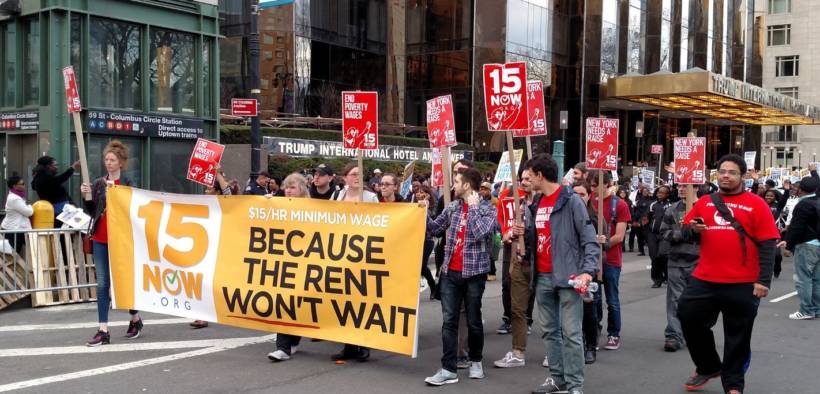Research Links Minimum Wage to Suicide Rates

“I think in general, we do know that poor mental health is strongly correlated with poverty.”
Increasing the minimum wage can lead to a reduction in the suicide rate, according to a new study by researchers at Emory University. The research, published in the Journal of Epidemiology & Community Health, found a positive correlation between the two, particularly when considering the effect of $1 minimum wage increases, Leslie Young reported for Global News.
Researchers John A. Kaufman, Leslie K. Salas-Hernandez, Kelli A. Komro, and Melvin D. Livingston, identified a 3.4 to 5.9-percent decrease in the suicide rate among individuals with a high School education or less. The sample groups included adults aged 18 to 64 years old while the researchers compared historical data from minimum wage increases, suicide rates, and state unemployment levels from 1990 to 2015.
Notably, the affect did not appear in adults with higher education levels, suggesting that workers without higher education experience are more likely to be affected by the minimum wage, possibly because they are less likely to be working at those wage levels.
Overall, 478 state minimum wage changes were pinpointed, Lisa Rapaport reported for Reuters.
“Minimum wage laws can potentially intervene in the wealth-health relationship to improve wellbeing of those working at low-wage jobs and their dependents, who have less access to resources and are at higher risk of depression and suicide,” said Kaufman of the Rollins School of Public Health, Emory University in Atlanta.
In addition to helping lower the suicide rate, minimum wage increases can also give a “protective effect” during periods of significant unemployment, he said.
Alex Gertner, an unaffiliated researcher at the Gillings School of Global Public Health at the University of North Carolina, Chapel Hill, explained the logic behind the finding to Reuters.
“Minimum wage laws may be especially important during periods of high unemployment when employers have an incentive to lower wages, which can increase financial stress on workers,” Gertner said. “Minimum wages laws may also help keep wages higher during economic downturns so that workers can help unemployed friends and family members.”
The US leads other wealthy nations with a suicide rate of 13.9 in 100,000 deaths, according to data from the Organisation for Economic Co-operation and Development (OECD). Additional data from OECD reported by The Commonwealth Fund highlighted the US health epidemic using other data points such as the lowest life expectancy, most money spent on healthcare, and highest chronic disease burden.
A Centers for Disease Control and Prevention study published Jan. 24 revealed a 40-percent rise in the suicide rate among blue-collar workers from 2000 to 2017, Bethany Ao wrote for the Philadelphia Inquirer. Occupations such as construction, oil, mining, and gas featured the highest rates compile from data from 32 states.
Overall, the number of suicides, often referred to as “deaths of despair,” have risen 30 percent, outpacing other causes of death. In 2018, 48,344 took their own lives.
Suicide, as one may expect, disproportionately affects lower income households. Similarly, the same is true with the income levels of nations. The World Health Organization found 79 percent of suicides worldwide are carried out in low- and middle-income states.
Mental health is the key behind preventing suicides, said Evelyn Forget, a professor of community health sciences at the University of Manitoba.
“I think in general, we do know that poor mental health is strongly correlated with poverty,” Forget said. “The ability to care for oneself and one’s family and to provide economically is particularly challenging for young men who don’t have the same opportunities, or don’t imagine they have the same opportunities that they might have had in different periods of history or under a different set of economic factors.”
Providing minimum wage increases may in turn help raise people out of poverty, thereby improving their mental well-being and reducing their likelihood for suicide. Lower-income workers, especially those without post-secondary education, are more likely to see the benefits of minimum wage increases beyond the obvious economic benefits. Research over a 25-year period showed the power a $1 raise can have at reducing deaths of despair.
If you or someone you know is thinking of suicide, call 911 for immediate medical assistance. Help is also available via the National Suicide Prevention Lifeline at 1-800-273-8255.















